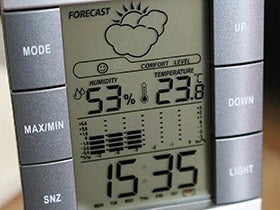888 400 7749
email: sales@acepurifiers.com
888 400 7749
email: sales@acepurifiers.com


School is starting, but warm weather means we are still spending more time outside and keeping windows open as much as possible. However, it doesn’t mean we are safe from poor indoor air quality at home. In fact, indoor air may be more polluted in the summer months than in the wintertime. The reasons include high humidity, pollutant buildup, pesticides and VOCs.
There are certain habits in particular that put our health and well-being at risk in the summer and fall, but awareness and a few tweaks in these habits can help combat poor IAQ this time of year.
In winter, it’s easy to take an interest in humidity levels, since low humidity could lead to nasal irritation and discomfort. In the summertime, humidity is often high and can make its way indoors through open windows and cracks in the building.
The problem is that high levels of humidity can lead to mold growth and a multitude of health problems. It often starts in the basement, where cold walls react to warm air or saturated soil around the home, which leads to condensation and increased humidity.
Humidity levels should stay between 40-60% in the summer, and they should not get much higher than 60% before mold growth becomes a concern. Most homes need a dehumidifier in the basement to regulate humidity, but increased air circulation and monitoring also help.
Hey, we get it, everyone is busy, and cleaning sometimes takes a back seat to hanging out with friends, getting some exercise or attending an outdoor event. But it might be a good idea to keep vacuuming and mopping regularly. Going in and out many times throughout the day means more dirt ends up inside, pets shed just as much as usual (if not more) and dust mites also like to multiply in these conditions.
During the spring, summer and fall, many people move homes or start on a renovation or restoration project close to their heart. And warmer months are great for these activities, as many projects can be done outside or with open windows to maximize ventilation and to minimize exposure to harmful chemicals. Still, taking on too much could wreak havoc with the indoor air quality, and poorly planned projects also bring more headaches than joy. Focus on one project at a time, include the weather forecast in your planning and buy the least harmful products possible.
If you are living in a warm region, constant high temperatures are worrisome and can lead to heat exhaustion or heat stroke, but leaving the air conditioning running all the time is also problematic. That’s because when the A/C is on, windows stay shut, and pollutants from everyday products and building materials as well as those brought in from outside remain trapped indoors, building up to unhealthy levels. It’s much better to run the air conditioning during the hottest hours in the day and to open windows at night for optimum air circulation.
Warmer temperatures mean more insects - a common complaint during the summer - and they like to find their way indoors during fall. Mosquitoes, flies, spiders, ants, and co. will make their appearances, wanted or not. But spraying pesticides is not a good idea, as these chemicals are not only harmful to insects but also to humans, and children in particular. Using screens in windows and on patio doors helps to keep bugs out. Boric acid can help combat ants in the home, and it’s much safer than chemical pesticides.
Try natural bug sprays with citronella and essential oils of lavender, thyme and mint to keep bugs away. Certain plants around the doors and deck can also help: Basil, lemon balm, lemongrass, lavender, rosemary and marigold, for example.
{"one"=>"Select 2 or 3 items to compare", "other"=>"{{ count }} of 3 items selected"}